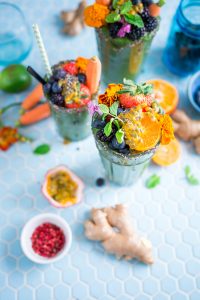Boost Your Brain Health Fast: Proven, Essential, Student-Friendly Nutrition for Academic Performance
This evidence-informed guide to nutrition for academic performance shows UK students how to fuel concentration, memory and stamina with smart food choices, hydration, caffeine safety and budget planning, plus 21 science-backed strategies, sample menus and exam-day checklists.
Last updated:
UK-Assignments

Why food matters for grades
Put simply, the brain is an energy-hungry organ. The way you eat changes how well you pay attention, remember information and stay calm under pressure. Building everyday habits around nutrition for academic performance helps your brain work longer and smarter while keeping your mood stable during heavy revision weeks.
Good news: you don’t need expensive supplements or complicated hacks. Start with basics, balanced plates, regular meals, hydration and sleep, and layer in smart upgrades. This guide translates the best-available guidance from UK sources into practical steps any student can use. See the NHS Eatwell Guide for the national foundation; browse the British Dietetic Association Food Fact Sheets for deeper dives. These are do-follow links to reputable resources you can trust.
The science behind nutrition for academic performance
Here’s a friendly overview of how key nutrients and eating patterns influence learning. You can use this as your mental model for nutrition for academic performance, then apply it to your meal planning.
- Low-GI carbohydrates: the brain runs mostly on glucose. Steady release carbs, oats, wholegrain bread, brown rice, new potatoes, beans, support sustained attention. Pair carbs with protein and fibre to keep blood sugar stable.
- Protein and amino acids: proteins provide building blocks for neurotransmitters. Include eggs, dairy, pulses, tofu, fish or chicken throughout the day to support concentration and recovery.
- Omega-3s (EPA/DHA): found in oily fish (salmon, mackerel, sardines), omega-3s contribute to cell membrane fluidity and may support memory. A fish-free route is algal oil; see the BDA’s factsheet on omega-3.
- Micronutrients: iron, iodine, zinc and B vitamins are repeatedly linked to cognitive function, especially when intake is inadequate. The NHS has guidance on vitamins and minerals.
- Polyphenols and antioxidants: berries, cocoa (high-cocoa dark chocolate), colourful veg and tea contain compounds that may support vascular and brain health.
- Hydration: even mild dehydration can lower attention and short-term memory. Fluids belong at the centre of nutrition for academic performance.
- Gut–brain axis: fermented foods and fibre support a healthy microbiome, which may influence mood and cognition. Think live yoghurt, kefir, kimchi, sauerkraut, plus beans and whole grains.
Note: This article is educational, not medical advice. If you have a health condition or dietary restriction, speak with your GP or a registered dietitian.
21 proven, science-backed strategies
Use these habits to build reliable nutrition for academic performance. Tick them off as you go; small improvements compound quickly.
- Front-load breakfast. Oats with milk or fortified plant drink, a banana, and a spoon of peanut butter make a steady-energy base.
- Plan your plates. Half fruit and veg, a quarter whole-grain carbs, a quarter protein, with a thumb of healthy fats.
- Chase colours. Aim for five colours per day to cover antioxidant variety, a fun way to build nutrition for academic performance without counting.
- Fish twice weekly. Include oily fish once if you eat fish; use omega-3 enriched eggs or algal oil otherwise.
- Pack portable protein. Nuts, seeds, roasted chickpeas, cheese or edamame stop “energy dips” during library sessions.
- Hydrate with a plan. Keep a 600 ml bottle at your desk, refill 3 – 4 times daily. Add slices of citrus or mint if you get bored of water.
- Smart caffeine. 1 – 3 cups of tea or coffee over the day works better than a single huge hit. See EFSA’s guidance that up to 400 mg caffeine per day is generally safe for adults (EFSA).
- Choose slow carbs before long study blocks. Oatcakes with hummus, wholegrain toast with eggs, or yoghurt with oats fit nutrition for academic performance.
- Pre-lecture snack. A banana plus a small handful of nuts beats sugary snacks for steady attention.
- Revision “bento”. Combine berries, wholegrain crackers, cheese or tofu, and raw veg sticks for an easy, balanced box.
- Don’t skip meals. Erratic intake harms concentration. Use alarms to anchor lunch and dinner.
- Mind the iron. If you’re often tired, ensure iron-rich foods (beans, red meat, fortified cereals) with vitamin C for absorption.
- Add iodine sources. Dairy, fish and iodised salt (where available) support thyroid function, relevant to energy regulation.
- Cook once, eat twice. Batch a chilli or lentil bolognese; freeze portions. Consistent nutrition for academic performance relies on friction-free meals.
- Keep emergency options. Tins of fish, beans, tomatoes; wholegrain pasta; frozen veg; eggs, cheap and fast.
- Portion dark chocolate. 2 – 3 squares of high-cocoa chocolate can be a satisfying study treat.
- Use herbs and spices. Turmeric, cinnamon, garlic and chilli build flavour without extra cost; variety supports appetite and adherence.
- Limit energy drinks. High sugar and high caffeine can spike and crash. If used, sip slowly with food.
- Create a sleep window. Stop caffeine 6 – 8 hours before bed; nutrition only goes so far if sleep lacks. Try the NHS’s sleep tips.
- Respect exam-day routines. Eat familiar foods; don’t experiment. Your nutrition for academic performance plan should feel boringly reliable.
- Reflect weekly. What meals helped you focus? Repeat them. Habits beat motivation when deadlines bite.
Budget-friendly meal plans and shopping lists
Great nutrition for academic performance can be inexpensive. Below is a simple framework that travels well between halls and shared houses. Prices vary by region and season, shop own-brand, frozen and canned to save.
Smart student shopping list (core)
- Oats, wholegrain bread or wraps, brown rice, wholewheat pasta
- Milk or calcium-fortified plant drink; live yoghurt or kefir
- Eggs, tinned tuna or salmon, beans, chickpeas, lentils, tofu
- Frozen mixed veg, spinach, peas; onions; tinned tomatoes; sweetcorn
- Bananas, apples, seasonal fruit; frozen berries
- Olive or rapeseed oil; peanut butter; seeds; mixed nuts
- Herbs, spices, stock cubes, soy sauce, chilli flakes, garlic
Example balanced plates
- Breakfast: porridge topped with frozen berries and yoghurt; or wholegrain toast with eggs and tomatoes.
- Lunch: tuna-bean salad wrap with spinach; or lentil soup and wholegrain bread.
- Dinner: chickpea and veg curry with brown rice; or salmon, new potatoes and greens.
Use batch-cooking to lock in nutrition for academic performance during busy weeks. Cook a big pot on Sunday; portion into containers; freeze half. Reheat safely and add a side salad or fruit.
Timing your meals around study
Meal timing shapes energy, mood and concentration. Align eating windows with your timetable to optimise nutrition for academic performance.
Before long study blocks
- Eat a balanced meal 60 – 90 minutes before you start: slow carbs + protein + veg.
- Pack a snack you can eat one-handed without mess (oat bar, nuts, fruit).
During study
- Every 45 – 60 minutes, sip water and stand up briefly. Pair tea or coffee with food to blunt jitters.
- Avoid oversized sugary snacks; they can lead to a crash mid-session.
Exam-day flow
- Breakfast you trust: porridge with seeds and banana, or eggs on toast with fruit.
- Arrive with water; take small sips during reading time if permitted.
- Post-exam, eat a proper meal to reset, protein + veg + carbs.
Hydration and caffeine: smart, safe use
Hydration is the quiet hero of nutrition for academic performance. Aim for pale-yellow urine. Tea, coffee and milk count toward fluid goals. Caffeine is useful in moderate doses, but timing matters.
- Daily fluids: many students do well with 2.0 – 2.5 litres total, more in hot weather or with training.
- Caffeine pacing: 50 – 100 mg (a small coffee) before a tough session can sharpen attention. Keep total under 400 mg per day (adults), and avoid caffeine 6 – 8 hours before sleep (EFSA guidance linked above).
- Energy drinks: if you choose them, nurse slowly with food and know your tolerance.
- Alcohol: it impairs sleep and recovery. For critical study periods, consider alcohol-free weeks.
Supplements: when to consider them
Food first is the core of nutrition for academic performance. Supplements can help when dietary intake is limited or when your clinician advises. Examples:
- Vitamin D: in autumn and winter, the UK recommends a daily supplement of 10 µg for most adults, see the NHS page on Vitamin D.
- Omega-3 (algal oil): an option for fish-free diets; discuss dose and suitability with a professional.
- Iron or B12: only with blood tests and medical guidance.
A registered dietitian can tailor advice to your situation; use the BDA’s find a dietitian page.
Sample 7-day student menu
This flexible plan demonstrates everyday nutrition for academic performance. Mix and match as budgets and tastes allow. Portions vary by size and activity; adjust as needed.
- Day 1 — Breakfast: oats with milk, frozen berries, pumpkin seeds. Lunch: wholegrain wrap with tuna, beans, spinach. Dinner: chickpea curry, brown rice, steamed greens. Snacks: fruit + nuts; yoghurt.
- Day 2 — Breakfast: eggs on toast, tomatoes. Lunch: lentil soup, bread, apple. Dinner: salmon, new potatoes and broccoli. Snacks: oatcakes + hummus; dark chocolate squares.
- Day 3 — Breakfast: kefir smoothie (banana + oats + peanut butter). Lunch: couscous salad with chickpeas and roasted veg. Dinner: tofu stir-fry with wholewheat noodles. Snacks: berries; trail mix.
- Day 4 — Breakfast: porridge with cinnamon and raisins. Lunch: baked sweet potato with beans and cheese. Dinner: turkey or Quorn chilli with rice. Snacks: popcorn; yoghurt.
- Day 5 — Breakfast: overnight oats, chia, sliced apple. Lunch: sardine and tomato pasta. Dinner: dhal with spinach, chapati. Snacks: carrots + dip; fruit.
- Day 6 — Breakfast: wholegrain toast, avocado, egg. Lunch: chicken or tofu grain bowl with veg and tahini. Dinner: cottage pie (lentil or beef) with peas. Snacks: nuts; cocoa yoghurt.
- Day 7 — Breakfast: pancakes (oat + egg) with berries. Lunch: soup + sandwich combo. Dinner: mackerel tray-bake with potatoes and peppers. Snacks: fruit; oat bar.
Quick no-fuss recipes
5-minute revision bowl
Microwave a pouch of brown rice, top with tinned salmon, frozen peas (defrosted), and soy-tahini dressing. This nails nutrition for academic performance with carbs, protein, omega-3s and fibre.
Power porridge
Cook oats with milk. Stir in chia seeds and cinnamon. Top with banana and a spoon of peanut butter.
Lentil tomato pasta
Simmer tinned tomatoes with garlic and chilli; add a tin of lentils. Toss with wholewheat pasta and spinach.
If your kitchen is limited
Hall life can complicate nutrition for academic performance. You can still eat well with a kettle, microwave and mini-fridge.
- Kettle: couscous pots with chickpeas and jarred peppers; instant oats with milk powder.
- Microwave: rice pouches, scrambled eggs, steam-in-bag veg, jacket potatoes.
- No-cook: wholegrain wraps with hummus and tuna; yoghurt pots with fruit and oats.
- Storage: stackable containers, a chopping board, and a small knife are high-leverage tools.
Inclusive options (vegetarian, vegan, halal, allergies)
It’s easy to adapt nutrition for academic performance to your needs.
- Vegetarian/vegan: prioritise pulses, tofu, tempeh, nuts, seeds; consider B12-fortified products.
- Halal/Kosher: choose certified meat or fish; plant proteins are budget-friendly anchors.
- Gluten-free: oats (certified), rice, potatoes, corn and quinoa cover carbs well.
- Allergies: swap nuts for seeds; dairy for fortified alternatives; always check labels.
Sleep, movement and stress – power partners to nutrition
Food is one pillar. For the best nutrition for academic performance outcomes, pair it with sleep, movement and stress skills.
- Sleep: a consistent 7 – 9 hour window, caffeine curfew and a dark room set the stage for memory consolidation.
- Movement: 20 – 30 minutes of brisk walking or a short body-weight circuit improves mood and focus.
- Stress: brief breathing drills or a five-minute mind-wander break prevent burnout and snacking spirals.
When assignments stack up, consider structured academic support too. Our How It Works page explains transparent milestones; Proofreading and Editing can polish clarity; and Assignment Writing Help UK offers ethical planning support that pairs well with your new nutrition habits.
Printable checklists
Library snack list
- Oat bar or homemade flapjack (reduced sugar)
- Banana or apple + small nuts pack
- Wholegrain crackers + cheese or hummus
- Water bottle (600 ml), refill 3 – 4 times
- Tea bags or instant coffee + milk sachets
Exam-day pack
- Familiar breakfast ingredients ready the night before
- Water bottle; clear snack if allowed (oat bar or nuts)
- Layers for room temperature surprises
Weekly rhythm
- Shop Friday, batch Sunday, freeze portions
- Put snacks in bag the night before lectures
- Set a 10-minute meal-planning timer each week
FAQs
What is the single biggest win for nutrition for academic performance?
Consistency. Eat regular, balanced meals and hydrate. Then layer in oily fish or omega-3 alternatives, berries and leafy greens.
Is breakfast essential?
Not for everyone, but many students report better focus when they eat a steady-energy breakfast. If mornings are tough, try a portable option like overnight oats.
Do I need supplements?
Food first. Vitamin D in winter is commonly advised in the UK. Other supplements should be personalised with professional input.
Can coffee replace sleep?
No. Caffeine can sharpen attention temporarily, but sleep drives memory consolidation. Combine smart caffeine with a stable sleep window.
How does this relate to academic skills?
Fuel makes skills usable. Pair nutrition for academic performance with strong study methods and clear writing. See our guides: Reflective Writing Strategies and Psychology Assignment Help UK.
Helpful internal links
- How It Works
- Proofreading and Editing
- Assignment Writing Help UK
- Reflective Writing Strategies
- Psychology Assignment Help UK: 21 Expert Tips, SPSS & APA 7 Support (Fast, Trusted, Proven)
- Affordable Proofreading Services UK: 11 Fast, Trusted, Proven Tips | UK‑Assignments
- Business Assignment Help UK: 11 Proven Strategies, Samples & Expert Support (2025)
- MSc Assignment Help UK: 12 Proven Project & Dissertation Services (2025)
- Law Essay Writing Help UK: Tips, Support, and Success Stories
- Order Form
Get student-friendly study support
Ready to pair nutrition for academic performance with clear, ethical academic support? Share your brief and deadline, we’ll propose milestones and a sensible plan so you stay calm and in control.
Start your order or visit How It Works for our simple process.










